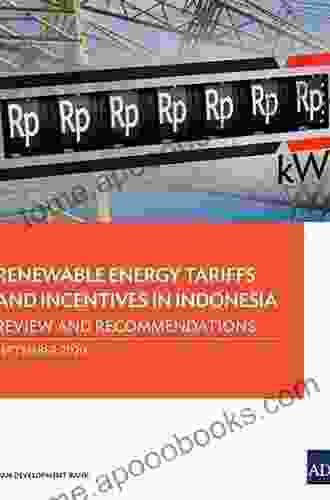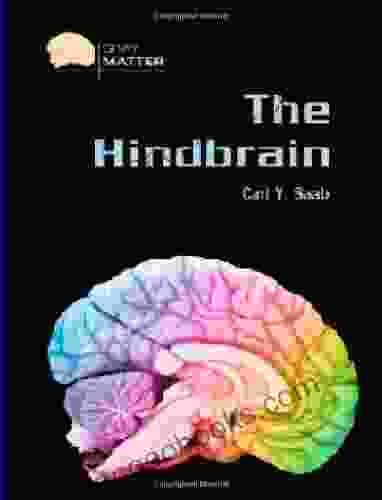Harnessing the Power of Sun and Wind: A Comprehensive Guide to Renewable Energy Tariffs and Incentives in Indonesia

Indonesia, an archipelago nation with abundant natural resources, is poised to become a global leader in renewable energy utilization. The country's ambitious target of achieving a 23% renewable energy share by 2025 has spurred significant government initiatives and investment opportunities. Among these, the establishment of renewable energy tariffs and incentives plays a crucial role in accelerating the transition to clean energy sources.
This article delves into the intricacies of Indonesia's renewable energy tariffs and incentives, providing a comprehensive overview of their mechanisms, benefits, and challenges. It serves as an invaluable resource for investors, developers, policy makers, and all those interested in the future of renewable energy in Indonesia.
Renewable energy tariffs are government-regulated prices at which utility companies Free Download electricity generated from renewable sources. They provide a stable and predictable revenue stream for renewable energy generators, encouraging investment and the growth of the industry.
4.5 out of 5
| Language | : | English |
| File size | : | 7013 KB |
| Text-to-Speech | : | Enabled |
| Screen Reader | : | Supported |
| Enhanced typesetting | : | Enabled |
| Word Wise | : | Enabled |
| Print length | : | 131 pages |
In Indonesia, renewable energy tariffs are set by the Ministry of Energy and Mineral Resources (MEMR). The tariffs vary depending on the type of renewable energy source, the project scale, and the location of the project. The current feed-in tariffs (FITs) for solar and wind energy are as follows:
- Solar photovoltaic (PV) systems: Rp 1,050/kWh (USD 0.07/kWh)
- Onshore wind turbines: Rp 1,200/kWh (USD 0.08/kWh)
These tariffs are competitive compared to fossil fuel-based electricity prices and provide a strong incentive for investors to develop renewable energy projects in Indonesia. It is important to note that the FITs are subject to periodic review and adjustment by the MEMR.
In addition to renewable energy tariffs, the Indonesian government offers a range of incentives to encourage the development of renewable energy projects. These incentives include:
- Tax holidays and exemptions: Renewable energy projects may be eligible for a 5-year tax holiday or a 50% reduction in income tax for up to 10 years.
- Investment tax allowances: A 30% deduction from taxable income is available for investments in renewable energy equipment and infrastructure.
- Customs duty exemptions: Import duties and value-added tax (VAT) are exempted for equipment and materials used in renewable energy projects.
- Land acquisition assistance: The government may provide assistance in acquiring land for renewable energy projects.
- Government guarantees: In certain cases, the government may provide financial guarantees to support renewable energy projects.
These incentives significantly reduce the cost of developing renewable energy projects, making them more attractive to investors.
While Indonesia has made significant strides in promoting renewable energy, there are still challenges to overcome. These challenges include:
- Grid integration: As the share of renewable energy in the grid increases, there is a need to ensure grid stability and reliability.
- Financing: Access to affordable financing remains a challenge for renewable energy developers.
- Bureaucracy: Navigating the regulatory framework for renewable energy projects can be complex and time-consuming.
- Skilled labor shortage: The renewable energy industry in Indonesia faces a shortage of skilled labor.
Despite these challenges, Indonesia's commitment to renewable energy presents immense opportunities for investors, developers, and other stakeholders. The government's ambitious targets, the attractive incentives, and the abundance of renewable energy resources create a favorable environment for the growth of the industry.
Indonesia offers a range of attractive investment opportunities in renewable energy. These opportunities include:
- Solar PV projects: Indonesia has vast potential for solar energy, with high levels of solar radiation throughout the country.
- Wind farms: Indonesia has strong wind resources, particularly in the eastern parts of the country.
- Hydropower: Indonesia has abundant water resources, providing significant hydropower potential.
- Biomass power plants: Indonesia has a large agricultural sector, producing substantial biomass residues that can be used to generate electricity.
Investors can participate in renewable energy projects in Indonesia through various channels, including:
- Direct investment: Investing directly in the development of renewable energy projects.
- Joint ventures: Partnering with local companies to develop and operate renewable energy projects.
- Investment funds: Investing in funds that specialize in renewable energy investments in Indonesia.
The government encourages foreign investment in the renewable energy sector and provides support to foreign investors through its investment promotion agencies.
Indonesia's commitment to renewable energy is evident in its ambitious targets, comprehensive incentive framework, and supportive government policies. The country's abundant natural resources and favorable investment climate present immense opportunities for investors and developers in the renewable energy sector. By embracing the potential of renewable energy, Indonesia can secure a sustainable and prosperous future for its people and the planet.
4.5 out of 5
| Language | : | English |
| File size | : | 7013 KB |
| Text-to-Speech | : | Enabled |
| Screen Reader | : | Supported |
| Enhanced typesetting | : | Enabled |
| Word Wise | : | Enabled |
| Print length | : | 131 pages |
Do you want to contribute by writing guest posts on this blog?
Please contact us and send us a resume of previous articles that you have written.
 Book
Book Novel
Novel Page
Page Chapter
Chapter Text
Text Story
Story Genre
Genre Reader
Reader Library
Library Paperback
Paperback E-book
E-book Magazine
Magazine Newspaper
Newspaper Paragraph
Paragraph Sentence
Sentence Bookmark
Bookmark Shelf
Shelf Glossary
Glossary Bibliography
Bibliography Foreword
Foreword Preface
Preface Synopsis
Synopsis Annotation
Annotation Footnote
Footnote Manuscript
Manuscript Scroll
Scroll Codex
Codex Tome
Tome Bestseller
Bestseller Classics
Classics Library card
Library card Narrative
Narrative Biography
Biography Autobiography
Autobiography Memoir
Memoir Reference
Reference Encyclopedia
Encyclopedia Maths Solutions
Maths Solutions Matthew Goodwin
Matthew Goodwin Wolfram Fleischhauer
Wolfram Fleischhauer Eg
Eg Susan Berry Casey
Susan Berry Casey Taylor Downing
Taylor Downing Ashley Capes
Ashley Capes Anthony D Darden
Anthony D Darden Nick Yetto
Nick Yetto Mark Roseland
Mark Roseland Any Cherubim
Any Cherubim David Stubbs
David Stubbs Brett Lane
Brett Lane Axel Englund
Axel Englund Tina Blythe
Tina Blythe Peter Roger Breggin
Peter Roger Breggin Ashley M Biggers
Ashley M Biggers Arnita Harpe
Arnita Harpe Michael A Messner
Michael A Messner Arthur Ransome
Arthur Ransome
Light bulbAdvertise smarter! Our strategic ad space ensures maximum exposure. Reserve your spot today!

 Felipe BlairSweet Tea Tuesdays: A Journey into Friendship, Southern Charm, and the Power...
Felipe BlairSweet Tea Tuesdays: A Journey into Friendship, Southern Charm, and the Power...
 Virginia WoolfThe American Twins of 1812 Bower: A Historical Saga of Courage and Adventure
Virginia WoolfThe American Twins of 1812 Bower: A Historical Saga of Courage and Adventure Rex HayesFollow ·3.5k
Rex HayesFollow ·3.5k Gordon CoxFollow ·10.5k
Gordon CoxFollow ·10.5k Arthur MasonFollow ·2.7k
Arthur MasonFollow ·2.7k David Foster WallaceFollow ·9.1k
David Foster WallaceFollow ·9.1k Ruben CoxFollow ·2.1k
Ruben CoxFollow ·2.1k Jermaine PowellFollow ·14.7k
Jermaine PowellFollow ·14.7k Hamilton BellFollow ·6.3k
Hamilton BellFollow ·6.3k Edgar Allan PoeFollow ·3.8k
Edgar Allan PoeFollow ·3.8k

 Gabriel Garcia Marquez
Gabriel Garcia MarquezLad Dog Baby Professor: The Perfect Book for Your Child
Lad Dog Baby...

 Fredrick Cox
Fredrick CoxAn Excerpt With Fifty Ways To Help Animals Promo Books:...
: Embracing Animal...

 Kelly Blair
Kelly Blair5th Grade US History: Famous US Authors: Fifth Grade...
Step into a captivating world of historical...

 Natsume Sōseki
Natsume SōsekiKull the Destroyer: A Timeless Tale of Sword and Sorcery
The Creation of a...

 Jim Cox
Jim CoxDas Ist Supertoll: Unlocking the Magic of German for Kids
Immersive Learning with...

 Bruce Snyder
Bruce SnyderUnlock the World of Quilting for Kids: Discover "Quick...
Are you ready to embark on a delightful...
4.5 out of 5
| Language | : | English |
| File size | : | 7013 KB |
| Text-to-Speech | : | Enabled |
| Screen Reader | : | Supported |
| Enhanced typesetting | : | Enabled |
| Word Wise | : | Enabled |
| Print length | : | 131 pages |








